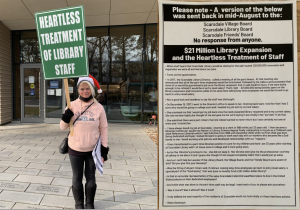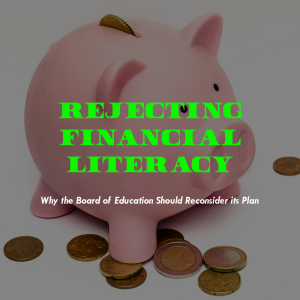Album Review: Cocoa Sugar is Sweet
May 31, 2018
When I first listened to “Cocoa Sugar” by Young Fathers, I must admit, I was confused. The songs sounded happy, yet sad. They were filled with liberty, yet felt confined. Their themes and feel continuously shifted. Once I finished my second listen of the album, however, I realized that the paradoxes were purposeful, as the album. Through its instrumentation and lyrics, depicts perfectly the complexity that comes with life. One paradoxical theme the album touches on is religion. The fourth song on the record, “Turn”, introduces the theme of distrusting religion, the singer explaining over a distorted instrumental how there’s “no such things as blessings.” However the next song, “Lord”, a gospel influenced song that completely contrasts from the last sonically and conceptually, demonstrates how the narrator still loves and accepts God, even with his co-existing distrust.
Along with the paradoxes expressed, the record also dives deeply into themes such as love, self appreciation, and unfair treatment, by the use of a loose narrative. Although it is speculated that the story is about an African American having a hard time achieving his dreams soon after being granted freedom, this conceptual narrative was never confirmed, and was left purposefully to the listener’s imagination. The theme of unfair treatment are seen clearly through the introductory track “See How”, where Massaquoi sings, “someday I’ll be a star, that’s shining bright in the sky, I’m giving up on you bastards.” Later in the same song, the narrators confidence in accomplishing his dreams seems to diminish when he’s brought back to reality and remorsefully sings, “empty my body just to feel the love, what’s the price of the light when you are stuck in the shadows.”Finally, the song switches mood once again and comes to an uplifting ending where Massaquoi along with a choir repeatedly sings, “don’t let me know, see how it goes,” representing how even after all the obstacles that don’t allow the record’s character to pursue his dreams, this individual decides to overlook them and live life in the moment, hopeful, and diminishing the factors that diminish him.
The main hit from the record, “In My View” touches on all the major themes of the album. This is seen in the chorus, which states, “in my view, nothing’s ever given away, I believe to advance that you must pay, in my view love will never come my way, so when I leave, you’ll be dancing on my grave.” These lines demonstrate the feelings the narrator has towards love and justice in his life, saying that the injustice of not being given the things others take for granted have made it harder for him to find love. This song also acts as a great example of the album’s genre and the paradox it generates; the song constantly changes from a conventional sounding pop song to a rough and distorted instrumental with aggressive rapping over it. These two almost opposite sides to the one song, foreshadow the feeling and message of the entire album.
The paradox within the genre of “Cocoa Sugar” derives from the idea that the album is categorized in the pop genre, but nevertheless is extremely experimental in contrast to an average pop album. The group’s discography containing an extremely versatile sound, blends influences from hip-hop, African music, rock, and soul, in order to create an innovative genre never explored before. The fact that this album is their most conventionally sounding allows it to be their most accessible, however, to an average pop listener who is unaware of the group’s discography, this would most likely be the most experimental and unconventional piece they’ve ever experienced. The Young Father’s versatility, and lack of fear in experimentality makes this record highly valuable to listen to, especially if unaware with the group or experimental music. It will undoubtedly open up your mind to new genres of music, as well as the idea of introspective and meaningful albums, that allow one to leave the record’s journey with a new understanding of the themes discussed.

























